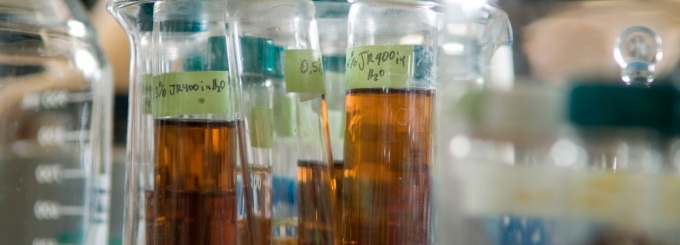Chemical Engineering

Chemical engineers are responsible for the economical, safe, and environmentally benign production of useful quantities of vital products from grams of a new drug to tons of a commodity chemical.
About the Major
Our Chemical Engineering BS program is broadly based to prepare graduates for positions in engineering development, design, economic evaluation, sales, construction, production, and management. Students in this program will enhance their effectiveness at designing real world chemical processes as they enter the workplace. A number of undergraduates go on to graduate work and careers in research, and some pursue degrees in medicine, business or law.
Research Opportunities
Many of our students are involved in actual research at the frontier of new scientific knowledge and technology, working closely with a faculty member and graduate students. Undergraduates do both experimental and computational projects, and have become published as co-authors on scientific papers.
Employment Outlook
Employment of chemical engineers is projected to grow 8 percent from 2016 to 2026 and the median annual wage for chemical engineers was $98,340, according the the Bureau of Labor Statistics.
Any company concerned with the design, production, or use of materials or energy has need for chemical engineers. Consequently, many diverse industries employ chemical engineers. They work in petroleum/energy and chemical production, electronics and battery technology, polymers, nanotechnology, pharmaceuticals and health care, food production and processing, biotechnology processes, environmental health and sustainability, and many other areas. BS graduates find employment in production, design, operations, sales, or process development. With further study graduates also move into careers in medicine, law, education, and management.
Accreditation

The Chemical Engineering BS program is accredited by the Engineering Accreditation Commission of ABET under the commission's General Criteria and Program Criteria for Chemical, Biochemical, Biomolecular, and Similarly Named Engineering Programs.

